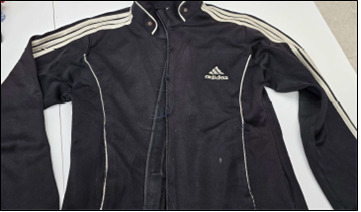June 25, 2024
SEOUL – Parasites were found in the balloons full of manure and trash North Korea sent to South Korea in May and June in retaliation against anti-Pyongyang propaganda leaflets, the Unification Ministry said Monday.
According to the analysis conducted by officials specializing in filth, different types of parasites, including roundworms, whipworms and pinworms — all of which are parasitic worms that can infect humans — were detected in the trash-filled balloons. Officials explained that human genes were also found in the soil where parasites were found, suggesting that the detected parasites could have originated from human feces.
The ministry’s analysis comes after collecting and examining some 70 trash-laden balloons.
Soil-transmitted parasites are typically identified in underdeveloped countries with poor health and unsanitary environmental conditions. They usually occur when people use human waste as agricultural fertilizer, not chemical fertilizer.
The North’s trash-carrying balloons, however, contained only a small amount of soil waste and had no risks of transmitting parasitic diseases or contaminating land as they were collected and managed by the military after they fell in Seoul and other cities, according to the ministry.
Apart from parasites, the balloons also contained ripped clothing, such as denim jackets and neckties supplied by a South Korean company to the North, cut with scissors or a knife. According to the ministry, the apparel company has been sending clothes to the North since 2000.

A North Korean counterfeit product pirating Disney’s Winnie the Pooh character. PHOTO: UNIFICATION MINISTRY/THE KOREA HERALD
“It appears that North Korea (intentionally) damaged the items that were delivered to the North (by the South) before as a means to express extreme antipathy toward anti-North Korea leaflets, showing its stance on nations it perceives as hostile or belligerent,” a ministry official was quoted as saying in a press release.
The ministry also pointed out that the isolated regime had tried to hide the dire living conditions of its residents by sending plastic bottles with caps and wrap-around labels removed to make it hard to identify the product information or brand.
“It seems that the North had taken such measures to prevent the exposure of its residents’ living conditions, economic difficulties (North Korean people face) and human rights abuses (by sending plastic bottles without caps or removing wrap-around labels),” the ministry noted.
However, the ministry explained that the trash-filled balloons did show the struggles of North Korean people. Some items included socks that had been mended several times, hand gloves made from pieces of fabric stitched together, torn baby pants and stretched-out baby socks. North Korean counterfeit products pirating Disney’s Winnie the Pooh character and Hello Kitty, and luxury brands like Adidas were also found.

A fake Adidas jersey. PHOTO: UNIFICATION MINISTRY/THE KOREA HERALD
In addition, slogans idolizing North Korean leader Kim Jong-un and his late father, Kim Jong-il, were also discovered, which reflects the dissent among North Koreans toward mobilizing administrative action to launch balloons carrying trash to the South, the ministry noted.


